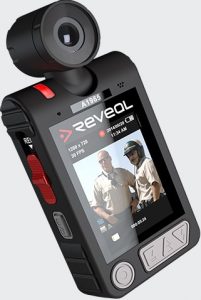All of B.C.s police officers will be wearing a body camera, if the Special Committee to Review the Independent Investigations Office (I.I.O) has its way.
The Committee’s report specifically recommended that “The Provincial government aggressively pursue the steps necessary to implement the police use of body-worn cameras, in consultation with police and non-police stakeholders.”
There is evidence from other jurisdictions that body cameras worn by police are effective in curbing aggressive behaviour from both the public and the police during high conflict situations (view our prior article).
The Independent Investigations Office was established by the Ministry of Justice in order to investigate critical incidents, such as when a person has died or suffered serious harm due to the actions of a police officer. The I.I.O also investigates police officers for possible misconduct or involvement in criminal offences.
The I.I.O report noted successful use of body cameras in Toronto and Calgary, as well as many U.S.A. jurisdictions. Vancouver police utilized body cameras when they enforced the eviction of a homeless camp from an East Vancouver park in 2014.
The Chief Civilian Director noted that body worn cameras could particularly assist the I.I.O when they are conducting investigations such as situations involving the deployment of Emergency Response Teams, use of police dogs, and incidents involving tasers (“Conducted Energy Weapons”).
Dr. Michelle Lawrence, a Law professor from the University of Victoria who reported to the committee, noted that nine coroners inquests in BC recommended the use of recording devices by police. She added, “the cost of equipping our officers with cameras pales in comparison the injuries and the harms that we all suffer when evidence of police encounters is not available to us for forensic review.”
Potential privacy concerns about the body camera include handling of video footage involving bystanders or other people having “innocuous interactions” with police, notifying the public of the use of video cameras, questions about how the information will be used and stored, possible encryption, restriction of access to the footage, and retention periods.
The staffing costs related to collecting, managing and storing the videotape data obtained from police body-cameras have not been clearly determined. On February 24, 2015, Cst. Mike Russell told CFAX 1070, “Calgary did a trial in 2013. They had to buy a new server that was 600 terabytes, at a cost of a half million dollars. Then they had to have a full-time staff of at least four people, who are in charged of monitoring what came in, electronic disclosure, and all those sorts of things.”
To view Canada’s Privacy Commissioner’s report, released on February 18, 2015, click on the following link.
To view the Report on the I.I.O released on February 24, 2015, click on the following link.
Jayne Embree, M.A.
Jayne holds a Masters in Psychology and is a highly experienced Divorce Coach and Child Specialist. Currently on sabbatical, Jayne is conducting research in the area of family dynamics and parental conflict.

